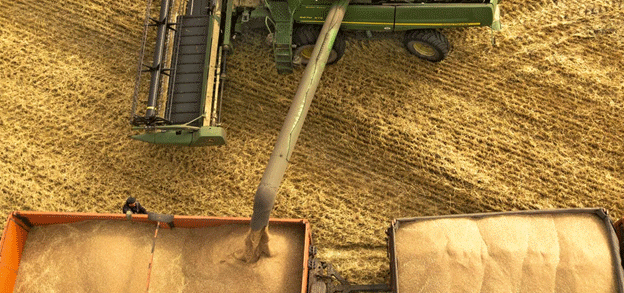The 2024 grain harvest in Russia is projected to reach 132 million tons, reflecting a slight decrease from the previous year due to adverse weather conditions. However, the silver lining is the improved quality of this year’s yield, with a greater proportion of food-grade and hard wheat varieties. This enhancement in quality not only promises to meet domestic needs but also sets the stage for Russia to export over 50 million tons of grain this year.
As of mid-September, the Russian Ministry of Agriculture reported that farmers had harvested grain from 33 million hectares, which is approximately 70% of the total area under cultivation. By September 21, the harvest included around 104 million tons of grains and legumes, with 76 million tons being wheat and approximately 15.9 million tons of barley. Notably, the quality of the grain has shown considerable improvement compared to last year, reinforcing the optimism surrounding this season’s harvest.
The southern regions of Russia have once again emerged as leaders in grain production. Despite facing challenging weather conditions, Krasnodar Krai reported a harvest of 12.6 million tons of grain, with over 10.3 million tons attributed to wheat and 1.2 million tons to barley. Impressively, about 80% of the wheat yield in Kuban consists of food-grade grain, with the average yield reaching 62.3 quintals per hectare, setting a record for the region.
In Rostov Oblast, early grain and legume harvests amounted to 10.9 million tons, with an average yield of 33 quintals per hectare. As late grains continue to be harvested, experts anticipate that the region could surpass a total yield of 11 million tons.
The Siberian and Ural regions have seen notable increases in wheat production, helping to offset declines in the Central and Volga regions due to adverse weather conditions. Current estimates predict a wheat yield of 82.9 million tons, reflecting a 400,000-ton increase from previous forecasts. The recent growth in Siberia has raised expectations to a record 11.3 million tons.
However, challenges remain. The Institute for Agricultural Market Conjuncture (IKAR) has maintained its wheat production estimate at 82.2 million tons, accounting for weather-related damages in regions such as Omsk and Altai. These challenges have resulted in varying grain quality, with reports indicating that only 20-30% of wheat harvested prior to significant rainfalls met food-grade standards.
As corn harvests face substantial declines due to prolonged heat and drought conditions, with yields reported as low as 10 quintals per hectare in some regions, experts warn of rising prices in the market. The demand for quality corn will remain high, but the current conditions have made production challenging.
Conversely, rice production remains on track to match last year’s levels, with yields reported at 68.1 quintals per hectare as of mid-September in Krasnodar Krai, a positive sign amidst otherwise variable results.
Despite the mixed quality reports, the export forecast has been adjusted upward, with expectations for grain exports reaching 52.5 million tons, driven by a robust demand from international markets, particularly in Southeast Asia and Africa. The diversification of export markets is evident, as traditional buyers such as Turkey and Egypt have seen reduced shares in favor of emerging markets.
As farmers prepare for the winter planting season, the transition to domestic seeds continues, with over 90% of winter wheat being sourced from Russian varieties. This shift not only supports local agriculture but also enhances the resilience of the sector against external pressures.
The 2024 grain harvest in Russia, while slightly reduced in volume, is characterized by a marked improvement in quality. This emphasis on quality over quantity offers a strategic advantage for domestic consumption and export potential, laying the groundwork for a more sustainable agricultural future. With ongoing support for farmers and a focus on domestic seed production, the agricultural landscape in Russia is poised for continued growth and resilience.
Error




